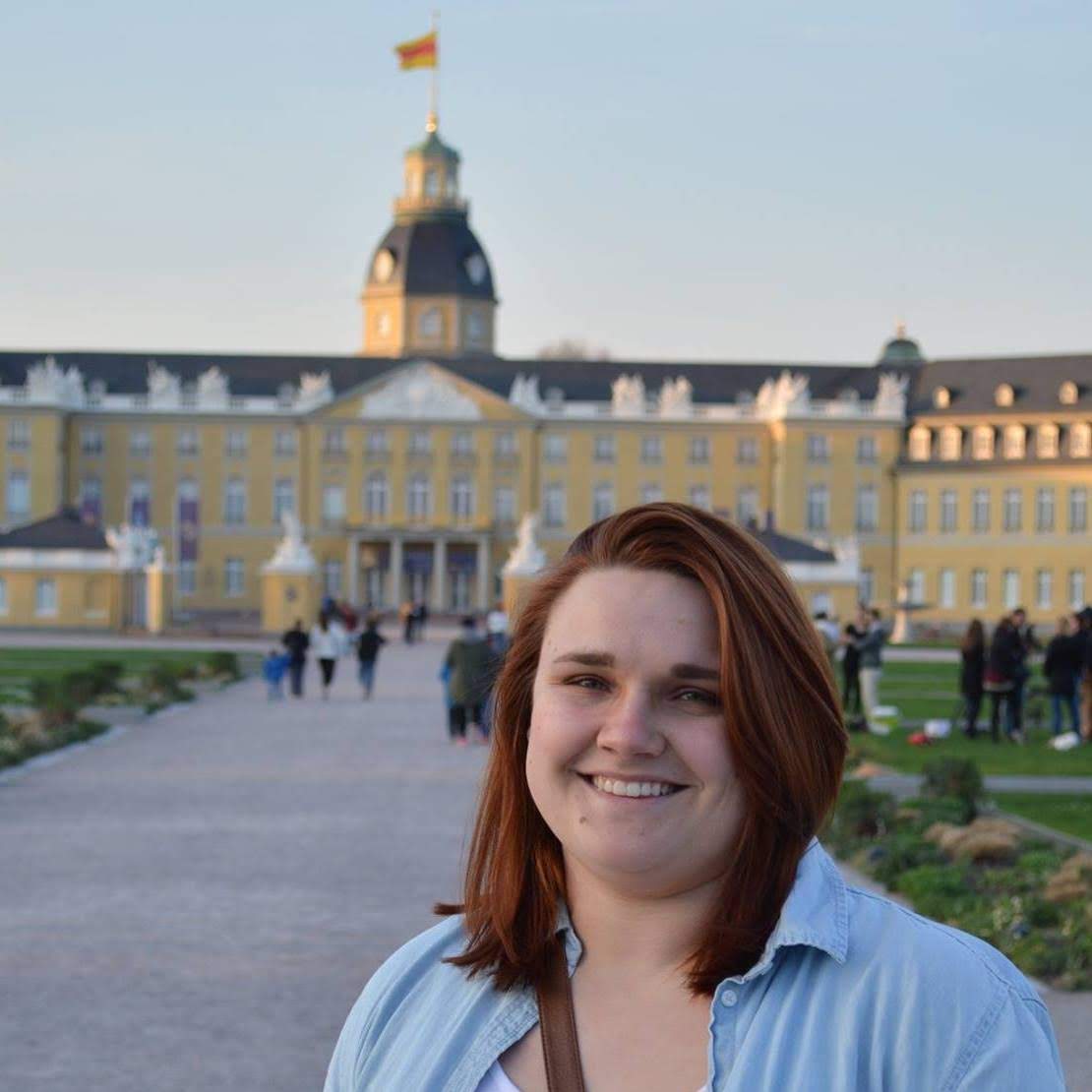Q & A with DAAD Young Ambassador Ariel Gunn

Q. Let’s start at the beginning…How did you come to study abroad?
A. Actually I didn’t know that I was going to be able to study abroad. I was looking at summer programs, but some housing things fell through. But I had started taking German in middle school in Chapel Hill, NC. So I walked into my advisor’s office in our department (ISE) I knew that our department has a program at the Karlsruhe Institute of Technology. I asked Paula if I could do a year-long exchange program there. I was already on a five year plan because I had done a co-op, which meant that when I came back, I would have a lighter schedule. Also for me, doing a double major with German, to get settled there and immerse myself, I figured it would be better to do the full year. My freshman year, I had looked at ME and ISE; if I had done Mechanical Engineering, I would have done a semester exchange at TU-Darmstadt.
Q: Had you been to Germany before?
A: I had done two days in Berlin and one in Dresden in High School. I did one of the Rhine river cruises with my parents a few years later, as my grandfather had roots in Mannheim and we wanted to explore that family connection. We extended it a few days to go down to Karlsruhe so that my parents I could see where I would be living before moving there.
Q. And how was the experience living in Karlsruhe?
A: I really enjoyed it. I was a lot happier there. I liked the smaller-ness of all of it. The grocery store I went to was about the size of the soda aisle at Kroger in Blacksburg. It was less overwhelming. And it was nice to get around with consistent public transport. Around here, it’s hard to get around without a car. Not just within the town of Karlsruhe—I could go anywhere in the country easily. I got to do some travel; mostly I stayed within Germany. A friend and I went to Oktoberfest in Munich for a day trip, coming back on a surprisingly full train at 3:00 a.m. Another friend and I met in Nuremberg in late spring. Both of us are German majors and were drawn to the history of the place. We visited the rally grounds and the buildings where the trials took place—it was so eerie to be in the room where the high Nazi officials had been on trial. You could feel the heaviness of what happened. That’s something that no matter how much you study it, you don’t get it until you can be there in the history. One of my favorite cities to visit was Cologne, where we walked on a road and read the plaque indicating it had been a Roman road.

Q. What about this international experience affected you as an engineer?
A. All of my classes were engineering courses, just taught in German. But the German academic system is very different, in that I had to problem-solve my own learning. You don’t have homework, quizzes or interim tests during the semester. Your entire grade depends on one final exam after the lecture period ends. That was--interesting. I noticed this difference in the language—they don’t say “I’m studying for the exam,” they say, “I’m learning for the exam.”
Q. What you’re describing sounds like metacognition, or awareness and knowledge about knowledge processes. So how did you bring this back?
A. I’m so much better at studying and learning on my own! My grades went up so much when I came back from Germany, I’ve made the Dean’s list several times.
Q: Did you take any of the German-style “block seminars?”
A: Yes! My supply chain class was taught as a block seminar by the executive in charge of the supply chain division at McKinsey in Europe. It was three days, eight hours a day. It’s really intense, but I remember more from that block seminar than from other courses that have been spread out over a semester. You immediately had to build on the concepts to understand the next bit—you learned and then immediately applied what you learned. Also the block seminars are often taught by outside people who are brought in. Then we had an oral exam—for that particular seminar of 30 students, thankfully the oral exam was in English. I had two oral exams in German the next semester. Nothing is scarier than sitting in a room with two instructors, giving an exam in a different language. So, coming back to Virginia Tech, nothing really scares me any more. In general, I find it’s easier to talk in front of groups now and meet new people. I know nothing is going to be as stressful as waiting outside the door to be called back in to find out my exam grade.
Q: What advice would you give for students who aren’t sure how to proceed taking a foreign language?
A: One, we have a great German department here. Two, there are so many great resources online where you can sign up and do it at your own pace. Getting there and being immersed in it is the best way to learn. There are a lot of opportunities that you can do in English, too. Especially in Germany, most people speak English.
Q: So what’s next?
A: I’m looking for jobs--I’ll definitely be looking in Germany as well!




